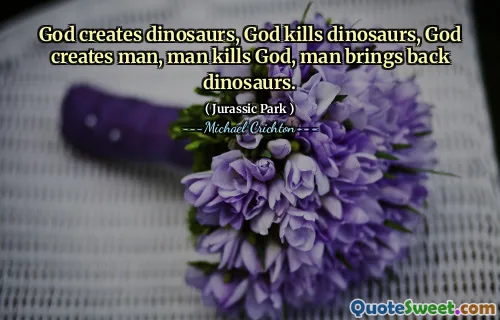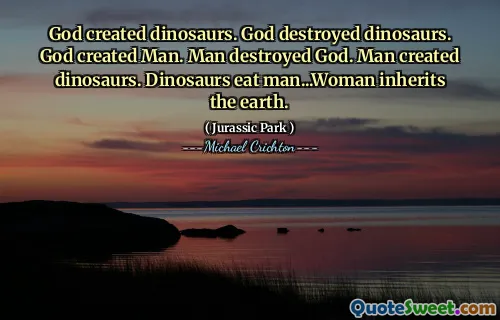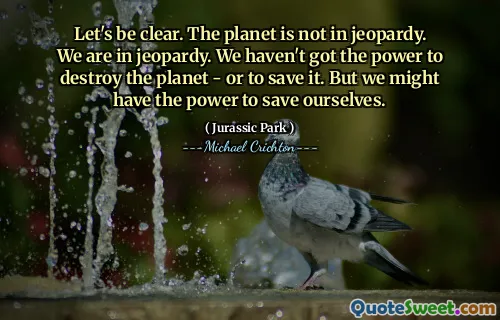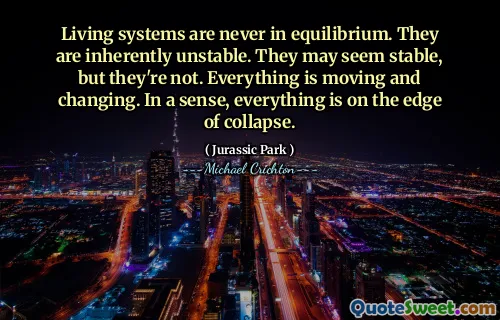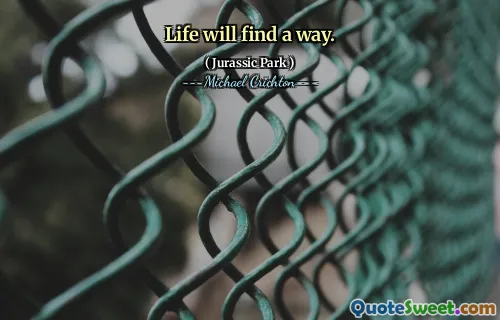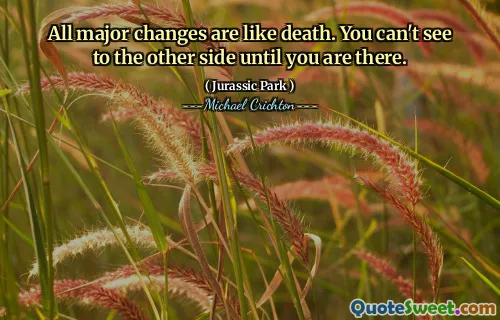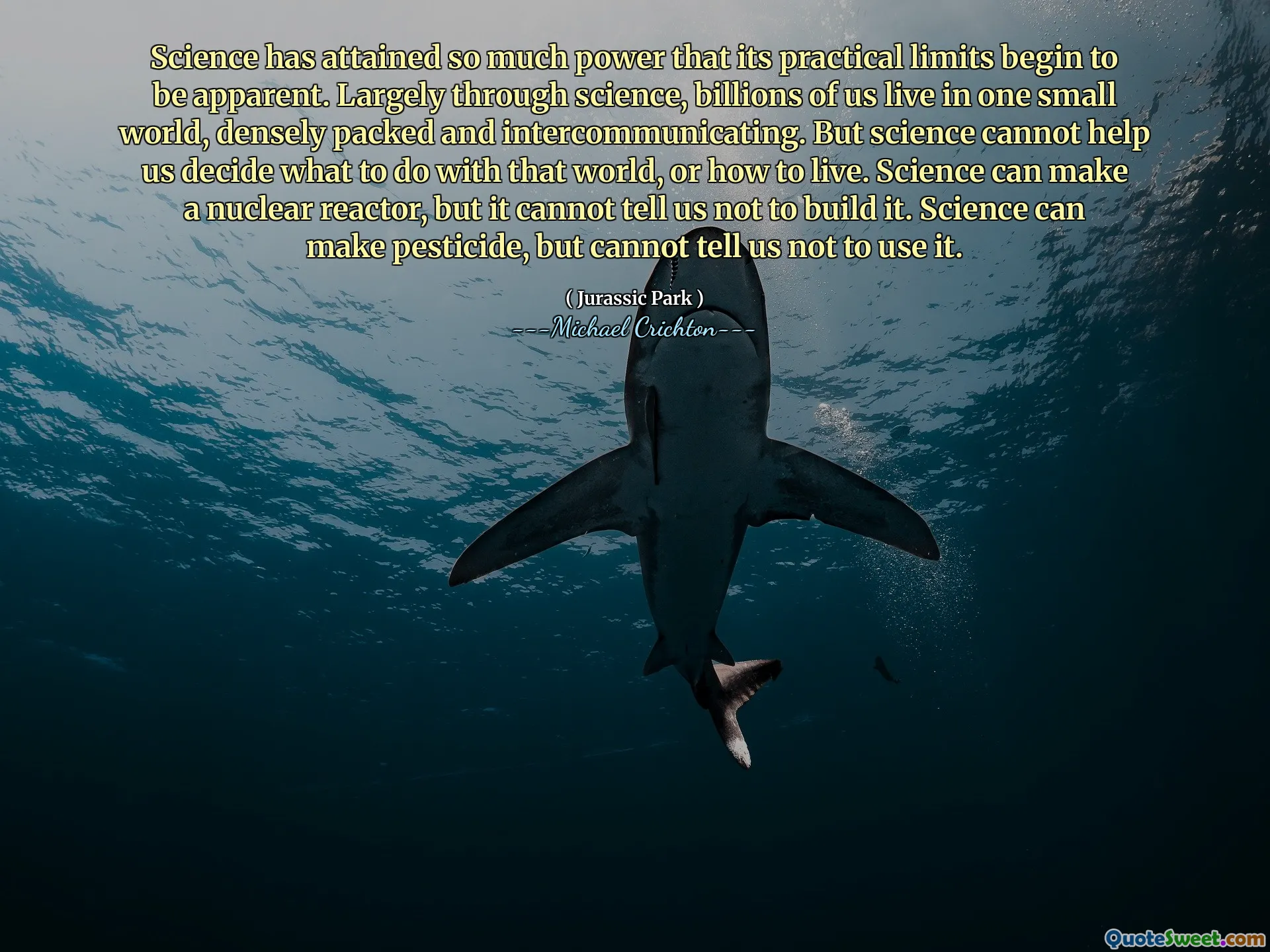
Science has attained so much power that its practical limits begin to be apparent. Largely through science, billions of us live in one small world, densely packed and intercommunicating. But science cannot help us decide what to do with that world, or how to live. Science can make a nuclear reactor, but it cannot tell us not to build it. Science can make pesticide, but cannot tell us not to use it.
In Michael Crichton's "Jurassic Park," the author reflects on the immense power of science and the limitations that accompany it. While scientific advancements have allowed humanity to thrive within a connected global community, they do not dictate moral or ethical choices. Science provides tools and capabilities that can significantly affect the world, such as nuclear reactors and pesticides, but it lacks the guidance to determine how we should use those tools responsibly.
This critical perspective on science suggests that the responsibility for decision-making lies with humanity rather than the scientific methods themselves. As we continue to innovate and push the boundaries of what science can create, the necessity of ethical considerations in our choices becomes increasingly important. Crichton emphasizes that with great power comes great responsibility, urging readers to reflect on the implications of their scientific advancements.
